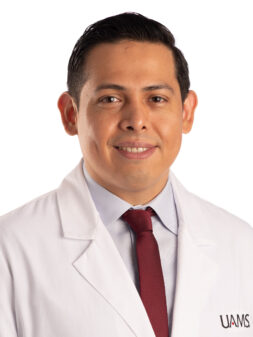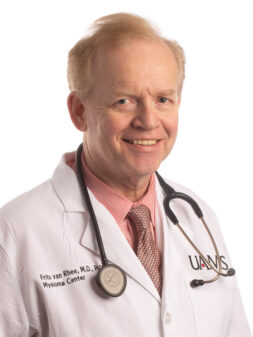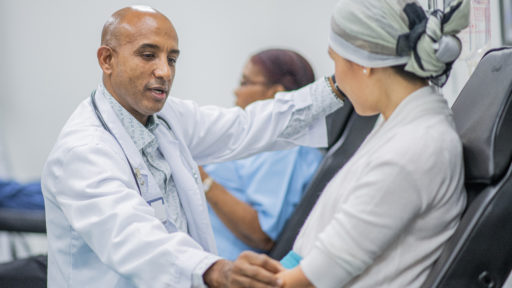Also called: cellular therapy
UAMS is the first and only hospital in Arkansas approved to provide a revolutionary new therapy for certain types of non-Hodgkin’s lymphoma.
Chimeric antigen receptor (CAR) T-cell therapy uses new technology to genetically modify a patient’s own T cells, enabling them to seek and destroy cancer cells. T cells are a type of white blood cell integral to the immune system.
As the only facility in Arkansas offering an adult Stem Cell Transplantation and Cellular Therapy program, the highly-trained physicians and other health care professionals at UAMS are uniquely qualified to provide this complex procedure for patients with certain types of non-Hodgkin’s lymphoma, including mantle cell lymphoma.
CAR T-cell therapy was approved by the FDA in 2017 for patients with certain types of non-Hodgkin’s lymphoma who have failed at least two other types of treatment. It has been shown in clinical trials to help 51% of patients achieve complete remission.
Here’s how it works:
- The patient’s T cells are extracted using a process known as apheresis. During this process, the blood is drawn from the patient and entered into a machine that separates its components, including the T cells.
- The T cells are sent to a lab where they are genetically modified using a virus that causes them to produce chimeric antigen receptors (CAR), which have the ability to detect and kill cancer cells.
- While the T cells are being altered, the patient undergoes chemotherapy. After nine days, the re-engineered T cells are reintroduced into the patient’s bloodstream, and within one week they begin attacking the cancer.
While CAR T-cell therapy is life-saving for many people, it is not effective for everyone. Most patients also experience side effects, which may be severe and include flu-like symptoms.










